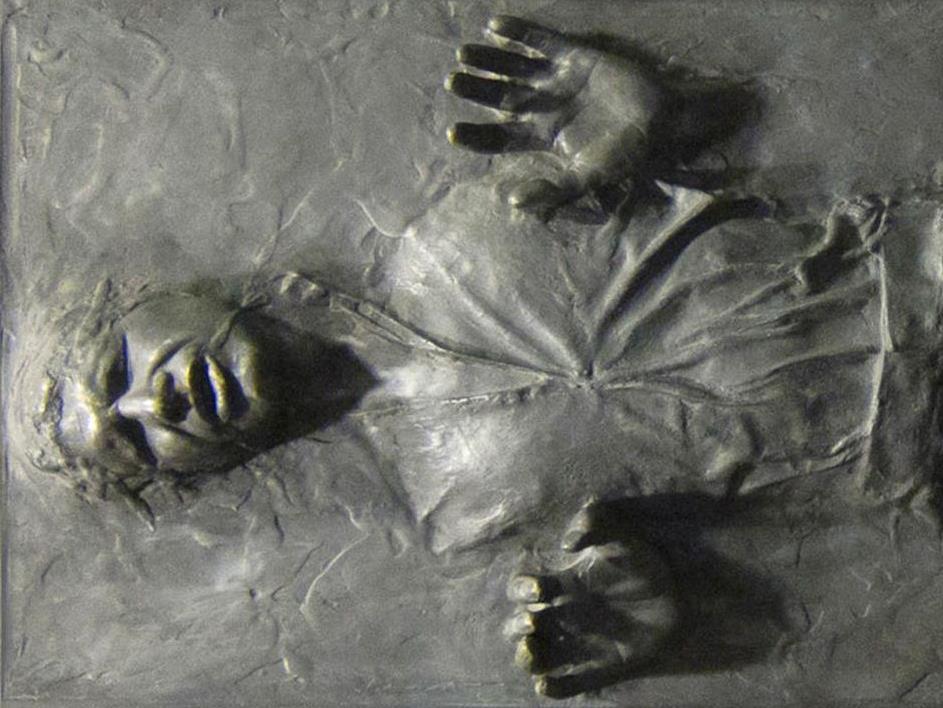Image: www.thegreenhead.com.
We get some mixed messages about how to speak in Australia.
On the one hand, in Queensland, Victoria and NSW, swearing in public can land you up to six months in jail.
On the other hand, the Abbott government recently tried to repeal section 18C of the Racial Discrimination Act that makes it unlawful to offend, insult, humiliate and intimidate someone on the basis of their racial or ethnic origin. People have ‘a right to be bigots,’ declared our Attorney General, Senator George Brandis.
Such laws reflect the power our legislators attribute to language and the regulatory extremes of structures of authority. These laws run counter to the idea that language is anarchical and that meaning is impossible to contain.
As professional wordsmiths, writers are another group of professionals who are highly invested in the effects of naming.
Recently, Australian author Kathy Lette named a character in her latest novel, Courting Trouble, after UK Justice Minister, Chris Grayling. Lette is based in UK but the local equivalent would be naming her character George Brandis.
Lette’s decision to name her character Grayling was a response to Grayling’s decision to ban books being sent to prisoners in jail. In Courting Trouble, the villainous Grayling ends up going mad in prison because he can’t get any books to read.
According to the UK Guardian, Lette convinced fellow writers Margaret Drabble, David Hare and Mark Haddon, to name their villains Grayling, too. ‘It will be a long running literary gag, until we annoy him into submission and he quashes this ridiculous rule of his,’ Lette said.
The Guardian now reports that Lette has her sights on another Grayling, the chairperson of the Man Booker Prize, A.C. Grayling, whose claim that he is not into ‘tokenism’ in literary awards is seen to efface systemic differences in the perception of male and female writers.
‘Perhaps it’s time all we female authors turned our satirical sights onto the judges of literary prizes, many of whom have been at Oxford for so long they have ivy growing up the backs of their legs – and what they graduated in is Advanced Condescension,’ Lette said.
Does Lette’s satirical activism constitute a new form of literary activism? Might Australian authors unhappy with reduced arts funding or refugee policy produce of run of Brandis villains, Julie Bishops or Tony Abbots.
‘I admire her gumption!’ said writer Meg Mundell. ‘It’s a creative literary stunt – or maybe a fun revenge tactic – that helps draw the media spotlight onto two important issues. But I think it has limited mileage.
‘It’s not something you want to find in every novel: readers want to get lost in the story, not be constantly checking a villain’s name so they can play spot-the-real-life-doppelganger.
‘And I agree, prisoners should be allowed books, and female authors should have an equal shot at literary accolades. But surely, amongst public figures, there are more fittingly evil targets than these two Grayling fellows: human rights violators, callous politicians. Why not keep your literary powder dry for truly rotten people?’ Mundell said.
Naming characters often depends on real-world resonances. Mundell wonders whether Lette’s focused act of naming is shared by all authors on some level. ‘I think all authors pick character names according to the emotional resonance those names have for us personally,’ Mundell said. ‘You don’t name a bad character after your best friend. You don’t name your hero after a nasty ex. Names matter to writers. Maybe we all do it, on some private, subliminal level. Lette’s just done it publicly, to draw attention to two particular issues. And it’s worked, so kudos to her. But it’s not something I’d do deliberately myself.’
Mundell emphasises that naming, in itself, is hugely important to authors. ‘Character naming is crucial for me,’ she said. ‘I name them early, and put a lot of thought into it. A good name animates a character, sparks them to life in my head. Until they have the right name, I can’t see them, hear them, or know them properly. Some pop up fully formed, complete with names. Others take longer to know: I try on various names, like outfits, until I find one that fits. You want something both fitting and memorable.’
For instance, in Mundell’s dystopian first novel, Black Glass, the names of main protagonists, Tally and Grace, incubate further narratives about the young women.
‘Tally’s one of those characters who arrived fully formed,’ Mundell explained. ‘Her name reflects her nature: always alert, trying to understand the world, keeping a running “tally” of situations, weighing things up. She’s a chatterbox, blurting out her thoughts aloud, honest to the point of bluntness – always “telling”, the opposite of a poker-face. “Tally” is also short for the longer and girlier “Tallulah”. She’s a tomboy, like Scout from To Kill a Mockingbird,’ Mundell said.
‘Grace’s name came from the idea of “grace under fire”, and from her beauty, which leads to trouble.’
Indeed, in Black Glass, Grace’s name-change constitutes an attempt by the character to gain (authorial) control of her life.‘She changes her name to Violet partway through the book, trying to shrug off the pain she’s enduring,’ Mundell said.‘I love the name Violet. Part flower, part risk: just a few letters away from violence. Both “Grace” and “Violet”, for me, carry that idea of vulnerability and courage, surviving a threat.’
Which begs the question what naming a character, say, George Brandis or Tony Abbot might signify?





